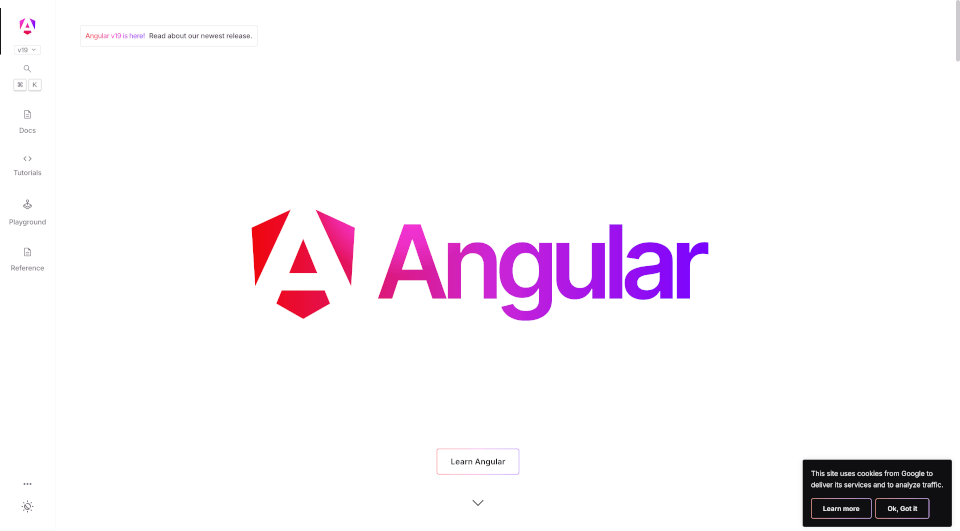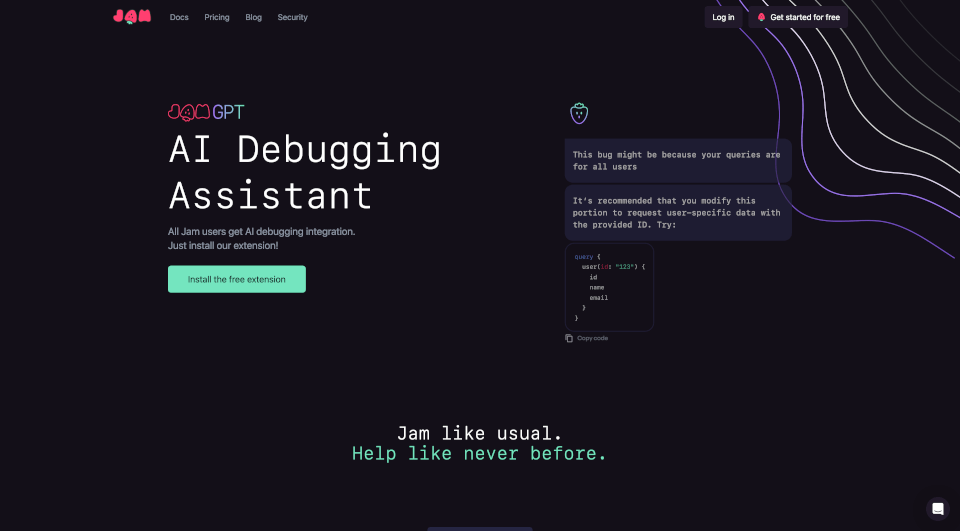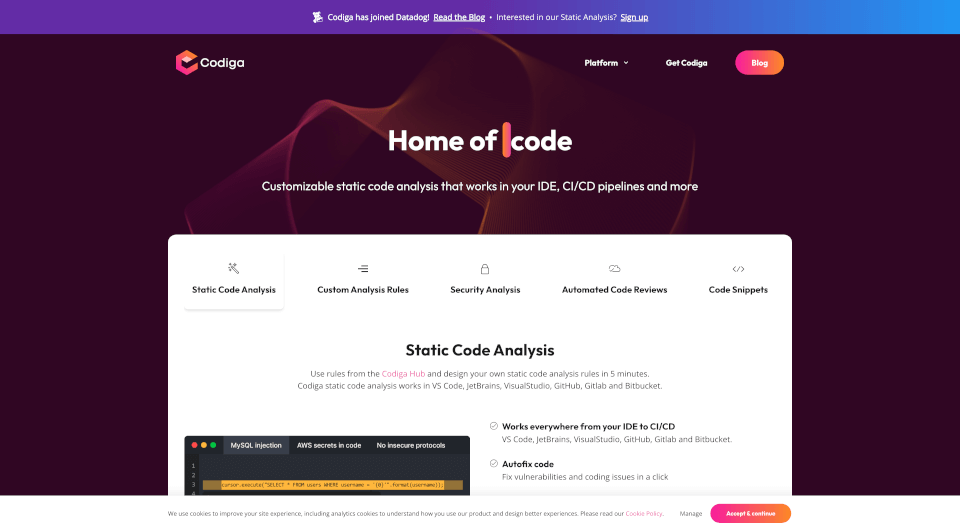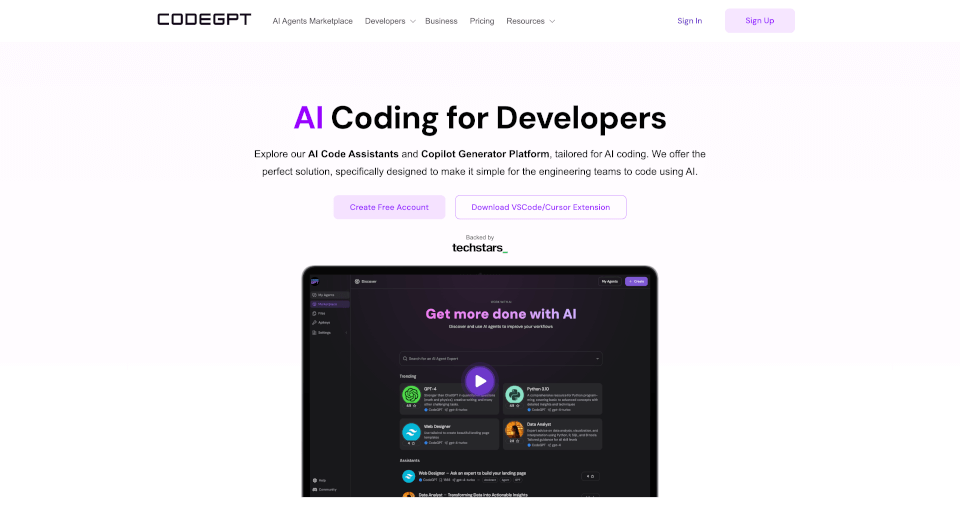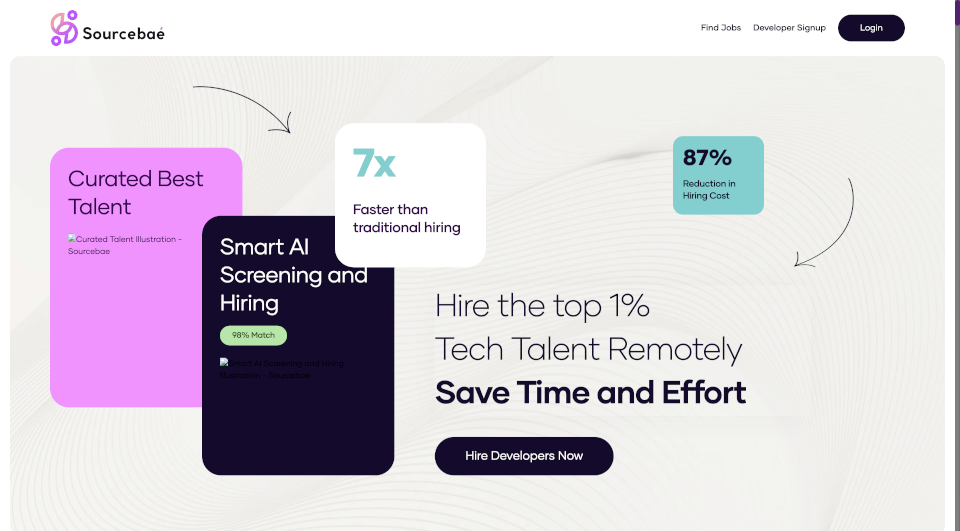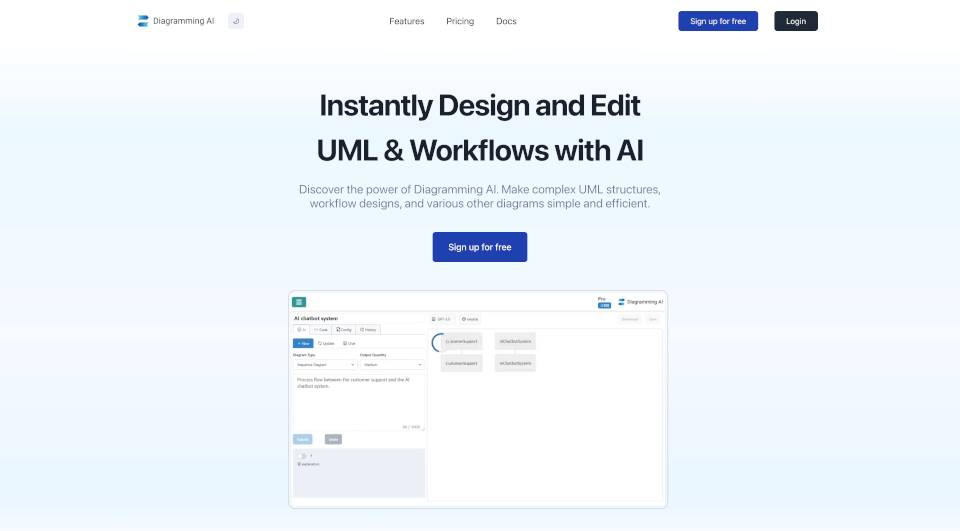What is Angular.dev?
Angular is a powerful, modern web development framework created by Google. With its latest release, Angular v19, developers are equipped with the tools to build apps that are not only efficient but also scalable and secure. Angular simplifies the web development process, making it accessible for developers at all skill levels, from beginners to seasoned professionals. Whether you're creating a small application or a large enterprise solution, Angular adapts to your needs and scales as you grow.
What are the features of Angular.dev?
-
Robust Architecture: Angular's architecture encourages clean code development and enhances maintainability. With a focus on components, developers can create reusable code blocks that streamline the development process.
-
TypeScript Support: Angular is built using TypeScript, a superset of JavaScript that adds static typing. This feature improves code quality and provides developers with tools that facilitate the debugging process.
-
Two-way Data Binding: One of the standout features of Angular is its two-way data binding, which ensures that any changes in the UI are reflected in the application model and vice versa. This leads to a more synchronized interaction between the user and the app.
-
Dependency Injection: Angular's built-in dependency injection makes it easier to manage how different components interact with each other, improving the overall efficiency of the application.
-
Routing and Navigation: With Angular's versatile routing capabilities, developers can create rich, single-page applications that enhance user experience through seamless navigation.
-
Cross-platform Development: Angular supports the development of applications for various platforms, including web, mobile, and desktop, ensuring that you can reach a wider audience with your products.
-
Internationalization (i18n): Angular is designed to facilitate internationalization, making it easy to build applications that cater to users across different languages and cultures.
-
Built-in Security Features: Angular prioritizes security with features that help protect against common web vulnerabilities, such as Cross-Site Scripting (XSS) and Cross-Site Request Forgery (CSRF).
-
Extensive Community and Ecosystem: With its growing community, Angular provides an abundance of resources, libraries, and third-party tools that support developers in building robust applications.
What are the characteristics of Angular.dev?
-
Scalability: As your project grows, Angular scales effortlessly, allowing developers to add new features without compromising performance.
-
Performance Optimizations: Angular includes features like Ahead-of-Time (AOT) compilation, tree shaking, and lazy loading, which improve application speed and efficiency.
-
Testing Support: Angular is equipped with robust testing frameworks, making it easier to test components and services thoroughly.
-
User-friendly Documentation: Angular boasts comprehensive documentation, tutorials, and resources that help users navigate the framework and enhance their development skills.
What are the use cases of Angular.dev?
Angular is highly versatile and can be applied in various scenarios, including:
-
Single-page Applications (SPAs): Build fast-loading SPAs that provide a seamless user experience without the need for page reloads.
-
Enterprise Web Applications: Develop large-scale applications with complex data requirements and user interactions.
-
E-commerce Platforms: Create responsive and scalable online stores that offer a smooth shopping experience across devices.
-
Mobile Applications: Use Angular with frameworks like NativeScript to create cross-platform mobile applications that leverage Angular's powerful features.
-
Progressive Web Apps (PWAs): Build applications that combine the best of web and mobile apps, providing users with a native app-like experience in the browser.
-
Dashboard Applications: Develop real-time dashboards that display analytics and data visualizations efficiently, leveraging Angular's reactive programming capabilities.
How to use Angular.dev?
To get started with Angular, follow these steps:
-
Install Angular CLI: Use the Angular Command Line Interface (CLI) to quickly scaffold new projects, components, and services.
npm install -g @angular/cli -
Create a New Project: Generate a new Angular application by running the following command:
ng new my-angular-app -
Run the Development Server: Navigate to your project folder and start the development server:
cd my-angular-app ng serve -
Build Your Application: Utilize Angular’s structure to create components, services, and modules for your application.
-
Test Your Application: Leverage Angular’s testing tools to ensure your application runs smoothly and is free from bugs.
-
Deploy Your Application: Once your application is ready, use Angular build tools to optimize your app for production and deploy it on your desired platform.
